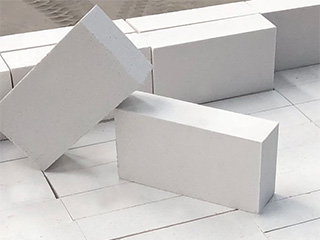Kiln bricks are an essential component of the cement industry. These bricks are used to line the interior of rotary kilns, which are large, cylindrical furnaces that are used to process raw materials into finished cement products. Kiln bricks play a critical role in the cement manufacturing process, and their importance cannot be overstated. In this article, we will explore the importance of kiln bricks in the cement industry.

1.Protecting the Steel Shell of the Kiln
The steel shell of the kiln is one of the most important components of the kiln, as it contains the high temperatures required for the cement manufacturing process. However, steel is susceptible to thermal stress and deformation when subjected to high temperatures for prolonged periods of time. Kiln bricks are used to line the interior of the steel shell, providing a layer of protection against the high temperatures and preventing the steel from warping or melting.
2.Providing Thermal Insulation
Kiln bricks are made of a special type of refractory material that is designed to provide excellent thermal insulation. This insulation helps to reduce heat loss from the kiln, which is important for several reasons. First, it helps to reduce energy consumption, as less heat is required to maintain the desired temperature inside the kiln. Second, it helps to improve the efficiency of the cement manufacturing process, as less energy is wasted on heating and cooling.
3.Facilitating Heat Transfer
Kiln bricks also play an important role in facilitating heat transfer inside the kiln. As the raw materials are processed inside the kiln, they are exposed to high temperatures that cause them to undergo chemical reactions. Kiln bricks help to transfer heat from the combustion zone to the raw materials, allowing these reactions to take place more efficiently. This results in a more uniform and complete combustion of the raw materials, which is critical for the production of high-quality cement.
4.Providing a Smooth Surface
The interior surface of the kiln must be smooth and free from cracks or irregularities in order to ensure efficient heat transfer and prevent material buildup. Kiln bricks are carefully designed and manufactured to provide a smooth and uniform surface, ensuring that the raw materials move smoothly through the kiln and are evenly exposed to the high temperatures. This helps to prevent material buildup, which can reduce the efficiency of the cement manufacturing process and result in product defects.
5.Resisting Corrosion
The raw materials used in the cement manufacturing process are often highly corrosive, which can cause damage to the kiln lining over time. Kiln bricks are made of materials that are highly resistant to corrosion, ensuring that the lining remains intact and functional even after prolonged exposure to corrosive materials. This helps to extend the lifespan of the kiln and reduce maintenance costs.
6.Reducing Downtime
The cement manufacturing process is a continuous process that requires the kiln to operate for prolonged periods of time without interruption. Any downtime can have a significant impact on production, resulting in lost revenue and increased costs. Kiln bricks are designed to be durable and long-lasting, reducing the need for frequent repairs or replacements. This helps to minimize downtime and ensure that the kiln is operating at peak efficiency at all times.
7.Ensuring Product Quality
The quality of the cement product is directly related to the quality of the kiln lining. If the kiln lining is damaged or worn, it can result in product defects or inconsistencies. Kiln bricks are carefully designed and manufactured to provide a high level of consistency and quality, ensuring that the cement product is of the highest possible quality.
In conclusion, kiln bricks are a critical component of the cement manufacturing process. They play an important role in protecting the steel shell of the kiln, providing thermal insulation, facilitating heat transfer, providing a smooth surface, resisting corrosion, reducing downtime, and ensuring product quality. Kiln bricks are carefully designed and manufactured to withstand the high temperatures and corrosive materials used in the cement manufacturing process, and they must be replaced periodically to ensure that they continue to provide optimal performance.
The selection of the appropriate kiln bricks for a particular kiln depends on a variety of factors, including the size of the kiln, the materials being processed, and the operating conditions. Kiln bricks are available in a range of shapes, sizes, and compositions, each designed for specific applications and operating conditions.
In summary, the importance of kiln bricks in the cement industry cannot be overstated. They are a critical component of the cement manufacturing process, providing protection for the steel shell of the kiln, thermal insulation, heat transfer, a smooth surface, corrosion resistance, reduced downtime, and ensuring product quality. Without kiln bricks, the cement manufacturing process would be much less efficient and much more costly. Therefore, it is important for cement manufacturers to pay close attention to the quality and performance of their kiln bricks and to invest in high-quality replacements when necessary.
Contact: Mgr. Han
Phone: 0086-13589497465
Email: 1255953279@qq.com
Add: Industrial Area of Lingzi Town,Zichuan District,Zibo City, Shandong,China